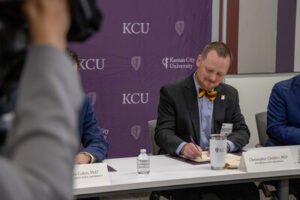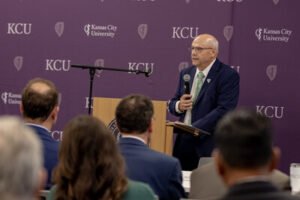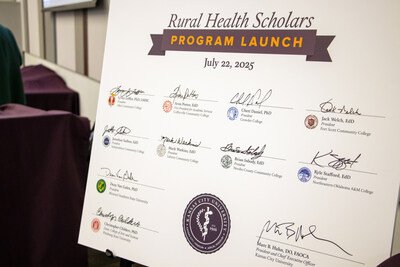JOPLIN, Mo. – Kansas City University (KCU), Missouri’s leading producer of practicing physicians, has launched its Rural Health Scholars program to address critical shortages of doctors and dentists in rural, underserved regions of Kansas, Missouri, Oklahoma, and Arkansas. The program provides an accelerated, seven-year pathway for students from rural backgrounds to become osteopathic physicians (DO) or dentists (DMD).

The initiative is a collaborative effort between Missouri Southern State University (MSSU), Pittsburg State University (PSU), and eight community colleges across three states. Students begin their studies at participating community colleges, transfer to MSSU or PSU for two years, and—after meeting academic and interview requirements—receive early admission to KCU’s College of Osteopathic Medicine or College of Dental Medicine.
Urgent Need for Rural Healthcare Providers
According to the Kaiser Family Foundation, rural areas face severe healthcare provider shortages:
-
Missouri needs nearly 500 additional primary care physicians and 350 dentists.
-
Oklahoma requires almost 300 physicians and 200 dentists.
-
Kansas faces a shortage of more than 100 physicians and 50 dentists.

“With this multi-institution, multi-state collaboration, we are expanding opportunity for students with substantial rural backgrounds who are best positioned to serve rural areas,” said Dr. Richard Schooler, Vice President of KCU’s Joplin campus. “This program unites 11 institutions under one mission—improving healthcare access in underserved communities.”
Partnering for Regional Health Impact
Dean Van Galen, President of MSSU, emphasized the program’s impact on local talent retention:
“The Rural Health Scholars program keeps bright students in the Four States region while preparing them to serve as the next generation of healthcare providers.”
Dr. Chris Childers, Dean at PSU, added:
“Southeast Kansans need better access to care, and this partnership provides a fast, affordable, high-quality education for future doctors and dentists.”
Program Highlights
-
Multi-state, multi-institution model (unlike single-state fast-track programs).
-
Early conditional acceptance to medical or dental school.
-
Accelerated seven-year timeline (traditional track takes eight years).
-
Focus on rural student recruitment to ensure long-term practice in underserved areas.
KCU’s Rural Health Scholars program is expected to make a significant difference in closing rural care gaps, ensuring more patients have access to high-quality, compassionate healthcare.




